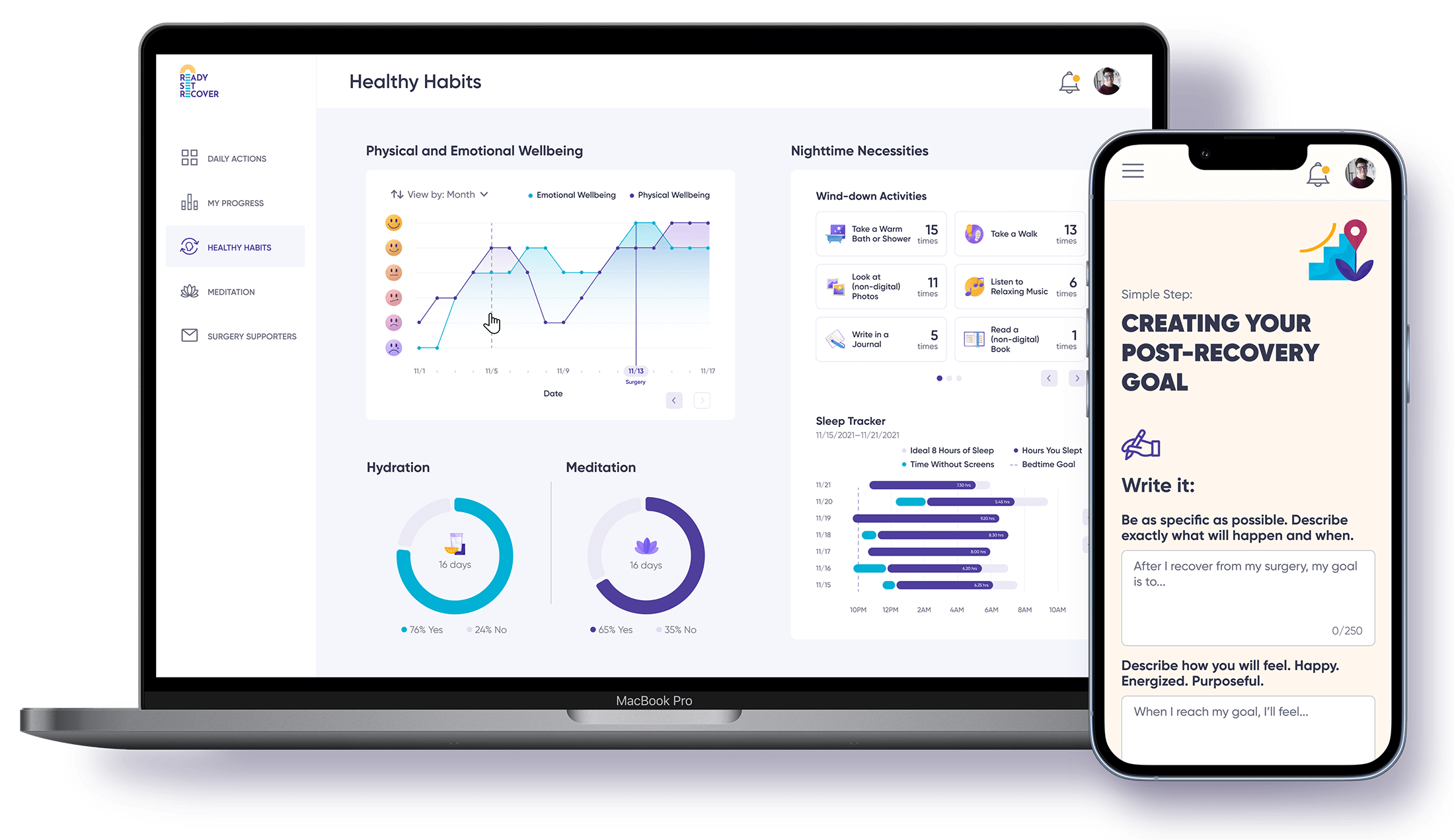Preparing for Surgery: Tips for a Smooth Experience


Picture this: you’re preparing for surgery, something you’ve never experienced before. Your heart is pounding with anticipation, your mind is swirling with what-ifs, and your hands are holding a stack of papers with pre-surgery instructions that might as well be written in another language. But what if you could turn that confusion into clarity? Imagine walking into the hospital, not with trepidation, but with confidence, knowing that you’ve done everything in your power to prepare. This is not a dream scenario. It’s entirely possible, and this guide on “preparing for surgery” will show you how.
Key Takeaways
Follow pre-surgery instructions to ensure a successful procedure and faster healing.
Prioritize comfort when choosing clothing for surgery, abstain from eating or drinking before the operation, and manage medications accordingly.
Optimize health by consuming healthy foods, staying active, quitting smoking if applicable and creating structure with Ready Set Recover program.
How to Start Preparing for Surgery
Sarah, a busy professional, was scheduled for a routine procedure. She glanced at her pre-surgery instructions but didn’t follow them closely. She skipped fasting, ignored medication guidelines, and assumed everything would be fine. But on the day of surgery, unexpected complications arose—something that could have been avoided with proper preparation.
This scenario underscores the importance of treating pre-surgery instructions as a roadmap to a successful procedure and a faster healing process. They are not mere suggestions but specific guidelines designed by your medical team to ensure your safety and health.
Understanding Your Pre-Surgery Directions
A common set of instructions that patients receive is to abstain from eating or drinking before surgery. This might seem odd. After all, wouldn’t our bodies need all the strength for the surgery? However, the directive serves a crucial purpose. An empty stomach helps avoid any issues during the procedure, such as:
aspiration, where stomach contents could enter the lungs under anesthesia
vomiting during surgery, which can be dangerous
complications from anesthesia, such as nausea and vomiting
Following these instructions helps ensure a safe and successful surgery.
So, adhering to pre-surgery directions such as these is not just about compliance; it’s about ensuring a successful and seamless procedure.
Managing Medications Before Surgery
But what about medications? Well, certain medications, such as blood thinners, need to be discontinued prior to surgery. This is because they can interfere with anesthesia, other medications used during surgery, or may increase the risk of bleeding.
We need to trust our medical team, including the surgical team, to guide us about managing our medications for the surgery. It’s all part of the process of ensuring a smooth operation and a speedy recovery. You should absolutely discuss which medications and supplements you're taking with your surgery team. They will advise you on proper usage and timing.
What to Expect on the Day of Surgery
So, you’ve navigated the pre-surgery directions, understood them, and managed your medications accordingly. But what about surgery day? What can you expect? The preparation's been done, and now it’s time to trust the process.
You’ll arrive at the hospital, change into a hospital gown, receive an ID bracelet, and follow any particular directions provided by the medical staff. While it can be a day filled with anxiety, knowing what to expect and being prepared for it can provide a sense of control and calm.
Dressing for Comfort and Convenience

Now, let’s take a moment and think about what to wear for surgery. This isn’t about fashion or style. It’s about ensuring comfort and convenience during your hospital stay.
Choosing Appropriate Clothing
Selecting the right clothes for surgery is like packing for a trip. You need to consider not only what will be comfortable but also what will be practical. Loose-fitting clothes are ideal as they ensure comfort and ease of access during medical procedures. Just as you wouldn’t wear a tight dress or jeans that are way too small for a long-haul flight, you wouldn’t want to wear tight clothing for surgery.
Instead, opt for garments that are easily removable and can accommodate dressings, or medical devices. Remember, your clothing choices are not about making a fashion statement but about aiding your recovery process.
Essential Items to Bring

You need to bring essential items for your stay at the hospital. This could include personal items like your identification documents, current medications, and items such as a light robe or your favorite book. Bringing these items can help make your hospital stay more comfortable and less stressful.
It’s like bringing a little piece of home with you.
What to Leave Behind
On the flip side, there are some items that you should leave at home. These are typically things that could potentially be lost or stolen, like jewelry or electronics. In other words, you shouldn’t bring items that could cause delays or complications.
So, when preparing for surgery, remember to pack light and bring only what is necessary for your comfort and recovery.
Health and Wellness Optimization
Something that often gets overlooked in the hustle and bustle of preparing for surgery but can make a meaningful difference in recovery is health and wellness optimization. Like a professional athlete preparing for a big race by optimizing their diet and lifestyle, you should prepare your body for the ‘race’ that is surgery. It makes sense...how you go into surgery will affect how you come out of it.
There are some simple things you can do, such as consuming healthy foods, maintaining an appropriate level of physical activity, and quitting smoking. Once again, research has demonstrated that these factors can enhance post-surgery recovery, so they are well worth the effort.
Diet and Nutrition

Your body needs the right nutrition to heal effectively. Consuming a balanced diet rich in vitamins and minerals can facilitate healing after surgery. So, fill up with foods like lean proteins, fruits, and vegetables.
Remember, what you put into your body can significantly impact how well it recovers after surgery.
Physical Activity
Physical activity is another critical component of pre-surgery preparation. Regular physical activity can improve your overall health, increase your strength, and boost your recovery potential.
So, lace up those sneakers and get moving! But remember, it’s important to consult your healthcare provider before starting any new exercise regimen.
Smoking Cessation
If you’re a smoker, quitting before surgery can significantly improve your recovery. Smoking decreases blood flow, hinders healing, and increases the risk of complications. It’s like trying to drive a car with the handbrake on - it just makes everything more difficult.
So, if you’re preparing for surgery, now is the perfect time to quit smoking before surgery. Remember, it’s not just about making recovery easier, but also about improving your overall health in the long run.
Communicating with Your Care Team
Communication is key in many areas of life, and preparing for surgery is no exception. Open and thorough communication with your care team can enhance your understanding, alleviate your fears, and help ensure the best possible outcome.
Discussing Your Health History
When discussing your health history with your care team, it’s important to be as thorough and accurate as possible. This isn’t just about ticking boxes on a form - it’s about providing a clear picture of your health that can help guide the surgical process. The more your team knows about you, the better prepared they'll be.
So, don’t hold back - every piece of information is a valuable part of the puzzle.
Anesthesia Planning

Planning for anesthesia care is a crucial part of the pre-surgery process. This involves understanding the different types of anesthesia, including general anesthesia and local anesthesia, discussing your previous experiences, and knowing the potential risks and complications.
Don’t be afraid to ask questions and discuss your concerns. Your anesthesiologist is there to guide you and ensure your safety during the surgery.
Addressing Concerns and Questions
Speaking of which, in general, don’t forget to voice any concerns or questions you might have. This is your journey, and it’s important that you feel comfortable and informed every step of the way. So, don’t hesitate to ask, clarify, and discuss. It’s better to ask a question than to wonder and worry.
Remember, no question is too small or insignificant when it comes to your health.
Final Preparations at Home
As your surgery date approaches, you’ll also need to make some final preparations at home. This includes arranging for support during your recovery, ensuring your home is safe for your return, and gathering the essential items you’ll need during your recovery.
You want to ensure everything is in order before you leave, so you can return to a comfortable and supportive environment.
Arranging Support
Having a support system in place is crucial during your recovery. This could be a responsible adult, such as a family member, a friend, or a professional caregiver. Having someone there to help you with daily tasks, provide emotional support, and assist with your recovery can make a world of difference.
So, don’t hesitate to reach out and ask for help. After all, we all need a helping hand sometimes.
Home Safety
Similar to how you would baby-proof a home for a new arrival, you’ll need to safety-proof your home for your return after surgery. This could involve removing tripping hazards, arranging for a temporary bedroom on the first floor, or installing a shower chair. These modifications can help ensure a safe and comfortable recovery at home. So, take the time to walk through your home and make any necessary adjustments.
Post-Surgery Essentials
In addition to making your home safe, you’ll also need to gather some essential items for your recovery. This could include:
bandages
compression socks
personal care items
Think of it like packing a first-aid kit - you want to have everything you might need on hand, so you can focus on your recovery.
Pre-Surgery Testing and Screenings
One of the final steps in preparing for surgery is undergoing pre-surgery tests and screenings, including blood tests and monitoring vital signs. These tests, which may also involve heart monitoring and imaging, serve as a final check to ensure that you are ready for surgery and to assess any potential risk factors, such as blood clots and high blood pressure.
It’s a crucial step to ensure that everything is ready for the journey ahead.
Scheduling and Attending Appointments
As with any important event, scheduling and attending appointments is a crucial part of preparing for surgery. These appointments are your opportunity to ask questions, clarify any concerns, and ensure that you are fully prepared for the surgery. Think of them as your final briefings before the big day - they’re your chance to gather all the information you need to feel confident and ready.
Creating Structure
As you can see, there are a lot of steps involved in preparing for surgery, and it can sometimes feel overwhelming, especially when it's occurring in tandem with the stress and physical challenges of needing surgery to begin with. A physician vetted wellness program such as Ready Set Recover can assist with the mental and physical preparation by creating a framework of daily actions to help the process go more smoothly.
Stay Positive While Preparing for Surgery and Recovery
So, there you have it - a comprehensive guide to preparing for surgery. From understanding pre-surgery instructions and managing medications to optimizing your health and wellness, arranging support at home, and undergoing pre-surgery tests and screenings, every step is crucial in ensuring a successful surgery and a smooth recovery. Remember, preparation is key, and every effort you put in now will pay off in your recovery. So, take a deep breath, and embark on this journey with confidence. You’ve got this!
Related Articles:
Frequently Asked Questions
How do you calm pre surgery anxiety?
Listening to calming music and using relaxation techniques such as breathing exercises, meditation or muscle relaxation are effective ways to help reduce pre-surgery anxiety. You may also consider exploring massage, acupuncture, homeopathy, aromatherapy or hypnosis.
What is it called when you prep for surgery?
Preoperative evaluation is the preparation before surgery, which typically includes meeting with your doctor and any necessary tests. This process is crucial to ensure that your surgery goes smoothly.
Why is it important to follow pre-surgery instructions?
Following pre-surgery instructions is essential to ensure your safety during the surgery and to maximize the chances of a successful outcome.
How do I detox my body before surgery?
Drink plenty of water, eat fiber-rich foods, and avoid processed foods, caffeine, alcohol, and tobacco. Some people use herbal teas or gentle detox diets, but it’s best to consult your doctor before making major changes.






